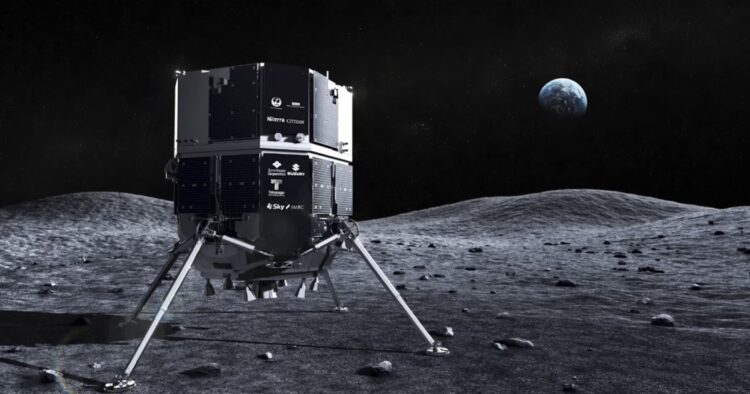In a historic achievement, Japan’s Moon lander, nicknamed the “Moon Sniper” for its precision landing capabilities, made a soft lunar landing early on Saturday. The Japan Aerospace Exploration Agency (JAXA) confirmed the touchdown at twenty minutes past midnight local time. This accomplishment marked Japan as the fifth country to achieve a soft lunar landing.
However, the mission encountered a challenge after landing. JAXA was unable to confirm whether the craft’s solar batteries were generating power. To address this uncertainty, the space agency made the decision to switch off the spacecraft approximately three hours after the landing. The shutdown was carried out with 12 percent power remaining, following established procedures, to prevent potential complications in restarting the lander.
JAXA expressed optimism about the possibility of restoring the lander’s power in the future. The decision to turn off the spacecraft was made to preserve the chance of recovery if sunlight were to hit the Moon from the west, allowing power generation. The agency is currently conducting a detailed analysis of the data acquired during the landing to assess the mission’s success in landing within 100 meters of the intended spot.
The mission, officially named the Smart Lander for Investigating Moon (SLIM), aimed to reach a crater where the Moon’s mantle is believed to be exposed on the surface. Despite the unexpected power challenge, JAXA noted that technical and image data acquired during the descent and on the lunar surface were successfully transmitted before the shutdown.
The space agency is actively working on further announcements regarding the mission’s results and the status of the SLIM craft. While the post-landing posture did not go as planned, JAXA expressed excitement about the successful landing and the potential for valuable results from the mission.
SLIM is part of a wave of new lunar missions launched by both governments and private firms, coinciding with the 50th anniversary of the first human Moon landing. Challenges such as crash landings and communication failures are common in lunar exploration, with only the United States, the Soviet Union, China, and India having successfully landed on the Moon before Japan’s recent achievement.

















Comments